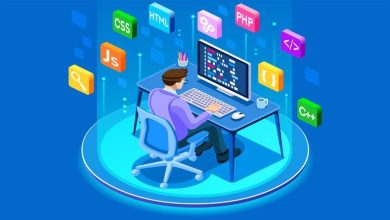The Rise of Online Degrees: A New Era of Learning in India

The way we learn has changed forever. Classrooms extend beyond four walls, and earning degrees is not restricted to campus settings. As more students and working professionals look for flexible, accessible, and recognized options to upskill, online degree programs in India have taken center stage. Whether it’s a fresh graduate from a small town or a mid-career professional in a metro city, the virtual classroom is now open to all.
Why Online Degrees Are Gaining Momentum
Convenience and affordability are key reasons people are turning to online education. For many, traveling to a university daily or relocating to another city isn’t workable. With online degree courses in India, learners can access quality education from their homes without traffic, relocation, or rigid schedules.
In the wake of digital transformation, even reputed universities have started offering online degree programs that are UGC-approved, ensuring credibility and acceptance in the job market. It’s no longer a backup plan—it’s the main route for many aspiring learners.
Flexibility Without Compromising Quality
The attractiveness of pursuing an online master’s degree in India lies in its flexibility. Students can balance studies with their jobs, businesses, or personal commitments. Lectures available on record, online labs, e-libraries, and real-time doubt-solving sessions enhance the learning experience and effectiveness.
Moreover, courses are designed to mirror the curriculum of on-campus programs. This means students don’t miss the academic rigor or the industry relevance they would get in traditional classrooms.
Recognized and Regulated
A primary concern for students is if online education is legitimate. Thankfully, regulatory bodies like the UGC have addressed this by approving several online degree courses approved by UGC. These certifications hold the same validity as their offline equivalents and are acknowledged by employers in various industries.
This regulation has given students the confidence to pursue online learning without second-guessing their decisions. It has also allowed universities to invest in better digital infrastructure, enhancing the learning experience.
Empowering the Working Class
Working professionals often hit a career roadblock when they lack a higher degree. However, returning to college isn’t always practical. That’s where online masters degrees in India come into play. These programs are tailored to meet the needs of adult learners, with flexible schedules, real-world case studies, and access to experienced mentors.
More qualifications give candidates an edge in IT, marketing, finance, and healthcare sectors. Employers now recognize online degrees as a sign of commitment, curiosity, and a willingness to grow.
Diverse Course Offerings
Gone are the days when online learning was limited to IT or coding. Nowadays, individuals can enrol in online degree programs in India covering fields such as business, psychology, commerce, journalism, data science, and more law. The range of options ensures learners from different backgrounds and interests can find programs that align with their goals.
The variety also encourages cross-disciplinary learning, enabling students to combine subjects and create unique career paths.
The Urban and Rural Balance
India’s digital divide is narrowing. With smartphones, affordable data, and digital literacy on the rise, online education is reaching towns and villages that once had limited access to quality education. Online degree programs in India are the great equalizer, bringing top-tier education to every pin code.
Students who once had to move cities or give up their dreams due to financial constraints can now continue their education without disruption. And for rural learners, this can be life changing.
The Future is Hybrid
While online education is booming, the future will likely involve a blend of online and offline learning. A hybrid model allows for flexibility and has the added advantage of occasional in-person sessions, internships, and practical workshops.
As online degree UGC approved programs continue to evolve, they are expected to incorporate more AI-driven tools, personalized learning paths, and peer networking opportunities. This continuous improvement is making them more interactive, engaging, and results driven.
Key Considerations for Choosing an Online Program
Before enrolling, students should ensure that the UGC approves their chosen course. Opting for a ugc approved distance mba can provide credibility and wider recognition .They should also check for factors like faculty qualifications, course structure, peer interaction opportunities, and industry tie-ups. Choosing programs that offer career support and practical learning modules will ensure a more holistic education experience.
Reviews, demo classes, and alumni feedback can help make an informed decision. Ultimately, pursuing an online degree represents a considerable commitment of both time and finances, warranting careful thought.
The rise of online degree programs in India represents more than a trend; it signifies a change in our perception education. With legitimacy, flexibility, and accessibility at its core, this learning mode empowers students and professionals nationwide. Everyone can dream big and study smart, whether they’re a nutritionist in Pune, an IT analyst in Bangalore, or a homemaker in Jaipur. Education’s future is here—and it’s digital.



